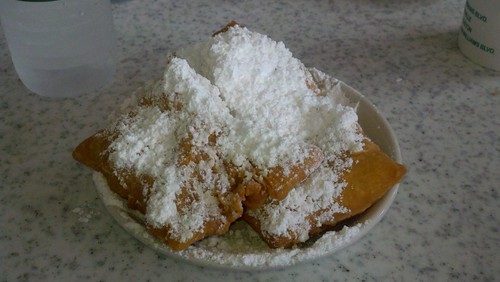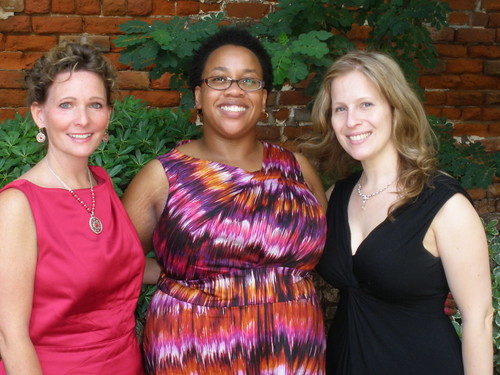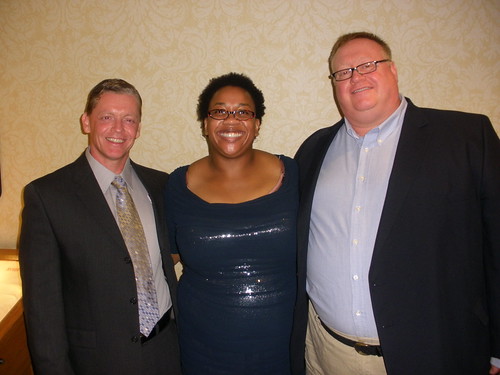My flights to and from New Orleans were a bit stressful but successful. My flight from Pittsburgh not only boarded a bit late, but it was slow boarding. Once boarding is completed, we push back from the gate. Where we sit for about five minutes. Finally the captain announces over the intercom that there is a medical emergency on the flight and we have to go back to the gate where we'll be met by the paramedics. We return to the gate, the door is opened, and after 10 minutes a man is escorted off the plane by EMS staff.
As usual, my schedule was packed. Thankfully I was able to squeeze in three trips to Cafe Du Monde. Two times I walked there from the Hilton, so that made it okay in my mind.

I attended a lot of meetings. The Executive Board had three meetings. These were held on Friday morning, Monday afternoon, and Tuesday afternoon. We also had a [Thursday evening reception] and a joint reception with the American Booksellers of America board on Saturday afternoon. It was a nice group of people and we were even treated to an early evening rainbow.

The opening speaker was Dan Savage. I really enjoyed his presentation and the positive tone he set for the conference. I was fortunate enough to get a copy of "It Gets Better" signed and thank him for reminding me how important my role as an advocate continues to be as a librarian, a faculty member on campus, and a friend.
Personal highlights from the conference include attending the Library Journal Movers & Shakers recognition luncheon. It was exciting to meet others recognized this year and in previous years. It was humbling to be surrounded by so many good people who have made truly amazing contributions to the profession. I particularly cherished feeling that I was surrounded by friends, both old and new.

Sue Polanka Courtney Young, and Lisa Carlucci Thomas
I'm very proud that my mentor, colleague, and friend Susan Ware received the inaugural RUSA RSS Service Achievement Award. I didn't make it into the room to see her receive the award, but I did manage to congratulate and toast her at dinner with two colleagues.
The closing speaker was Molly Shannon. It was very exciting to meet and introduce her program. Shannon will publish her debut children's book Tilly the Trickster in September.
Courtney Young with Molly Shannon
The conference closed out with the Inaugural Banquet. The new division presidents and new members of the ALA Executive Board were introduced. Among there were my friend and colleague, RUSA president-elect Gary White.

Gary White, Courtney Young, Dan Mack
Roberta Stevens passed the torch to Molly Raphael. The ALA 2011-2012 year begins!

